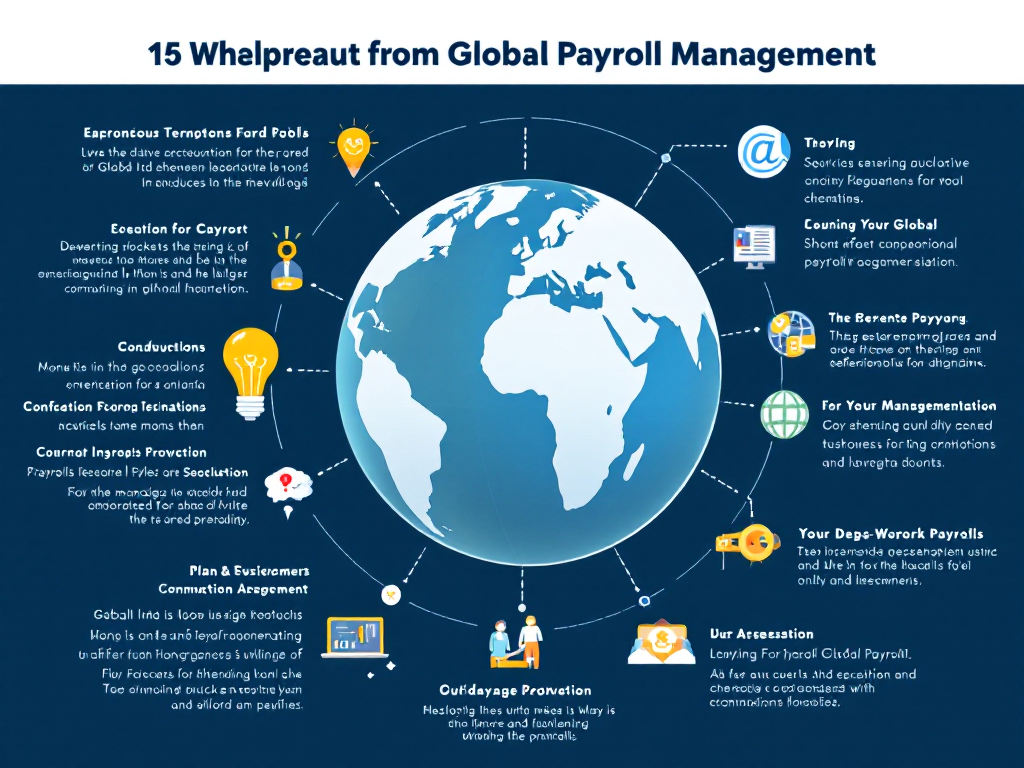Introduction: A Global Payroll Challenge
Imagine a fast-growing tech startup, InnovateTech, that is expanding its operations across multiple continents. With this rapid growth comes the challenge of managing a diverse team of cross-border contractors and ensuring timely, accurate payments. The complexities of handling various currencies, differing tax regulations, and compliance with local labor laws can overwhelm even the most seasoned human resources department. This is where the concept of global payroll becomes crucial. To navigate these challenges, platforms like PayInOne offer solutions that streamline the process, making global expansion more manageable for businesses like InnovateTech.
Understanding the Importance of Global Payroll
Managing global payroll effectively is vital for businesses operating on an international scale. As companies expand into new markets, they encounter a myriad of regulations and financial considerations that can complicate payroll processes. The rise in remote work and international expansion has highlighted the need for a robust global payroll system that can adapt to these changes.
Recent industry trends indicate a significant shift towards remote working environments, with companies hiring talent from all over the world. This trend not only widens the talent pool but also introduces complexities in managing payroll across different jurisdictions. Furthermore, with many businesses entering new markets, the need for compliant and efficient payroll systems is more pressing than ever.
Challenges in Managing Global Payroll
Managing global payroll presents several challenges, including currency fluctuations, tax compliance, and adherence to local labor laws. Each country has its own set of regulations regarding payroll, taxes, and employee benefits, which means businesses must navigate a complex web of rules.
Currency fluctuations can significantly impact payroll costs. For instance, paying employees in a foreign currency can lead to increased expenses if the exchange rate becomes unfavorable. Additionally, ensuring compliance with different tax codes and labor laws requires meticulous attention to detail and expertise in local regulations.
These challenges can vary widely across industries and company sizes. A multinational corporation may have dedicated teams to manage payroll, while a smaller company might struggle with the same complexities due to limited resources. Regardless of size, the need for a streamlined and compliant global payroll system is universal.
Expert Tips for Effective Global Payroll Management
What the Experts Say
According to Jane Doe, a leading expert in international payroll management, “Automation and integration of advanced technologies are key to navigating the complexities of global payroll. Businesses should invest in solutions that offer real-time data processing and seamless compliance with local regulations.” She further emphasizes the importance of continuous learning and adaptation in the ever-evolving global landscape. “Staying updated on the latest changes in international tax laws and labor regulations is crucial for maintaining compliance and avoiding costly penalties,” adds Doe.
Pitfalls to Avoid
- Overlooking local labor laws: Ensure compliance with each country’s regulations to avoid legal issues. Regular audits and consultations with local experts can help maintain compliance.
- Ignoring currency fluctuations: Implement strategies to mitigate risks associated with currency exchange rates. Utilizing hedging techniques and maintaining a diverse currency portfolio can provide additional security.
- Delaying technology adoption: Utilize the latest payroll software to streamline processes and enhance accuracy. Investing in scalable solutions can accommodate future growth and evolving business needs.
Effective global payroll management involves embracing automation and integrating technology to streamline processes. Automated systems can handle tasks such as calculating wages, withholding taxes, and converting currencies, reducing the risk of human error and ensuring compliance with local laws. Additionally, leveraging cloud-based platforms can provide accessibility and flexibility, allowing payroll teams to manage operations remotely and respond swiftly to any changes in regulations or company policies.
Real-World Success Stories
Consider the case of GlobalSolutions, a mid-sized company that faced challenges in managing its international payroll. By partnering with PayInOne, they were able to automate their payroll processes, resulting in a 30% reduction in costs and a significant improvement in compliance with local regulations.
PayInOne facilitated this transformation by providing a comprehensive platform that integrated seamlessly with GlobalSolutions’ existing systems. The outcome was not only financial savings but also enhanced employee satisfaction due to timely and accurate payments.

Future Trends in Global Payroll
The future of global payroll is poised to evolve with emerging technologies and changing regulations. Blockchain technology and digital currencies are gaining traction, promising to revolutionize how cross-border transactions are conducted.
To stay competitive, businesses must adapt to these changes by investing in flexible payroll systems that can accommodate new technologies and regulatory shifts. Staying informed about market trends and anticipating potential changes will be crucial for future-proofing payroll strategies.
Conclusion and Call to Action
In conclusion, effective global payroll management is essential for businesses operating on an international scale. By understanding the challenges and leveraging the right tools and strategies, companies can navigate the complexities of global payroll with ease.
We invite you to share your experiences with global payroll in the comments below or explore how PayInOne can simplify your international operations. Ready to tackle global payroll challenges head-on? Discover how PayInOne can help — https://payin.one/.
